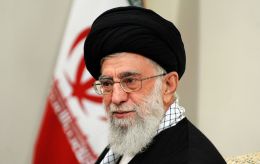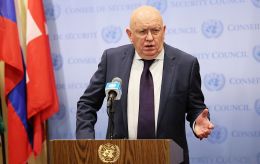Ukrainian major 'Simba': 'After war is over, I will build up strength, I do not believe in Russia's honesty'
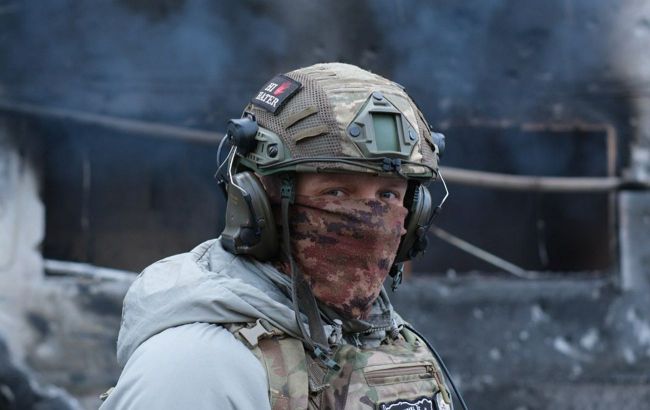 Major 'Simba' (photo provided by the press service)
Major 'Simba' (photo provided by the press service)
How the military operation near Nizhyn at the beginning of Russia's full-scale invasion of Ukraine slowed down the Russian offensive on Kyiv, the defense of Bakhmut, the Wagnerian combat strategy, and the justification of Russian prisoners of war, as well as the motivation of Ukrainian soldiers read in the RBC-Ukraine article.
During his 5 years of military service, the company commander of the 8th Special Operations Forces regiment with the call sign “Simba” fought in Rubizhne, Donetsk region, and in the settlements of Syze and Bolotene in Luhansk region during the ATO. After Russia's full-scale invasion of Ukraine, he fought near Nizhyn, Bakhmut, and Lyman. He conducted numerous assault and surveillance operations on the Kherson and Kharkiv directions. At 29, he was promoted to major for successful completion of tasks.
RBC-Ukraine asked Simba about his combat experience, military operations near Nizhyn and Bakhmut, the frontline stories that impressed him the most, and his understanding of the concept of heroism and his attitude towards military service evaders.
- Your military career began long before Russia's full-scale invasion of Ukraine. Why did you decide to join the army?
- When Maidan (Ukrainian Revolution of Dignity - ed.) was happening, I was directly involved in these events. That's when I finally realized that I wanted to go and defend my country. At that time, I was studying to become a programmer at the Kyiv Interregional Academy of Personnel Management but decided to enter the Odesa Military Academy, the faculty of airborne assault troops. In 2019, I received his diploma and almost immediately accepted the position of commander of a machine gun platoon of the 95th Assault Brigade in Rubizhne, Donetsk region.
Later, I performed combat missions in the settlements of Syze and Bolotene, Luhansk region. In 2020, after a rotation, I joined the Special Operations Forces and was assigned to the unit where I am still serving.
During my service, I received numerous shrapnel wounds, traumatic brain injuries, and many contusions that I can't even count, but all of them were not critical and allowed me to stay in the army.
I serve in the same unit as my father - he has been in the army for 34 years. He has the call sign "Lev" (Lion in Ukrainian - ed.). Everyone remembers the cartoon about the Lion King and his son Simba - my military nickname came from there.
_1.jpeg) Major “Simba” went through all the hot spots of the front during the full-scale war (photo provided by the press service)
Major “Simba” went through all the hot spots of the front during the full-scale war (photo provided by the press service)
- At the beginning of Russia's full-scale invasion of Ukraine, you organized a military operation to defend Nizhyn. Could you tell us about those events?
- I have long realized that there would be a full-scale Russian invasion. I reacted to it quite calmly because I was already prepared. When my friend sent me a link to Putin's speech, I watched it calmly, packed my things without any call, came to work, and started preparing for the tasks. By three days, we had already moved out to perform a combat mission. There were not too many personnel, so I gathered one consolidated staff group of 10 people, and, having planned certain activities that we had to perform, I turned to the unit commander with an action plan. He approved it and we moved to Nizhyn, Chernihiv region.
As soon as we reached Brovary, we realized that there were hostilities there. We had little chance of getting into Nizhyn, but we took the risk. We loaded more than 5 tons of various weapons and explosives and left.
Interestingly, there were no checkpoints on the road at that time, no one understood where Ukrainian units were and where the Russian units were. In the middle of the road, a tank drove toward us, and a column of vehicles was standing on the side. We thought it was cool - we were not alone here and we would have something to fight with. But when we drove closer, we saw the letter O - Russian vehicles coming from Belarus. The Russian occupiers did not realize who we were because we were without insignia, so we managed to drive through and get into the city. Later it turned out that this was the only road to Nizhyn at that time.
- How long did you stay in Nizhyn and did you manage to accomplish your planned tasks?
- Our operation lasted about a month - until April 2. In addition to our unit, there was the 58th Brigade in Nizhyn and maybe 5 men from the resistance movement who wanted to join us. They were formed by the military enlistment office from civilians, and they proved to be effective. When we arrived, they had already been given weapons, but they had almost no ammunition. However, later on, during the defense, we got many trophies, and the issue of weapons and ammunition was closed, because the Russian army was the “sponsor of this program”.
There was no direct storming of Nizhyn, their goal was Kyiv, and they were going through the outskirts to the capital. They did not expect any resistance from this city. And with the number of personnel we had, we had to not only hold the line but carry out 360-degree fire raids and ambushes. We could make three ambushes in a day from three different directions, and this misled the enemy about the number of personnel. They thought there were a lot of us and did not want to spend their resources to take the city.
We arrived in Nizhyn with small arms, and already there we fought against the Russians with theirs - captured armored personnel carriers, anti-tank grenade launchers, mortars, and even their artillery.
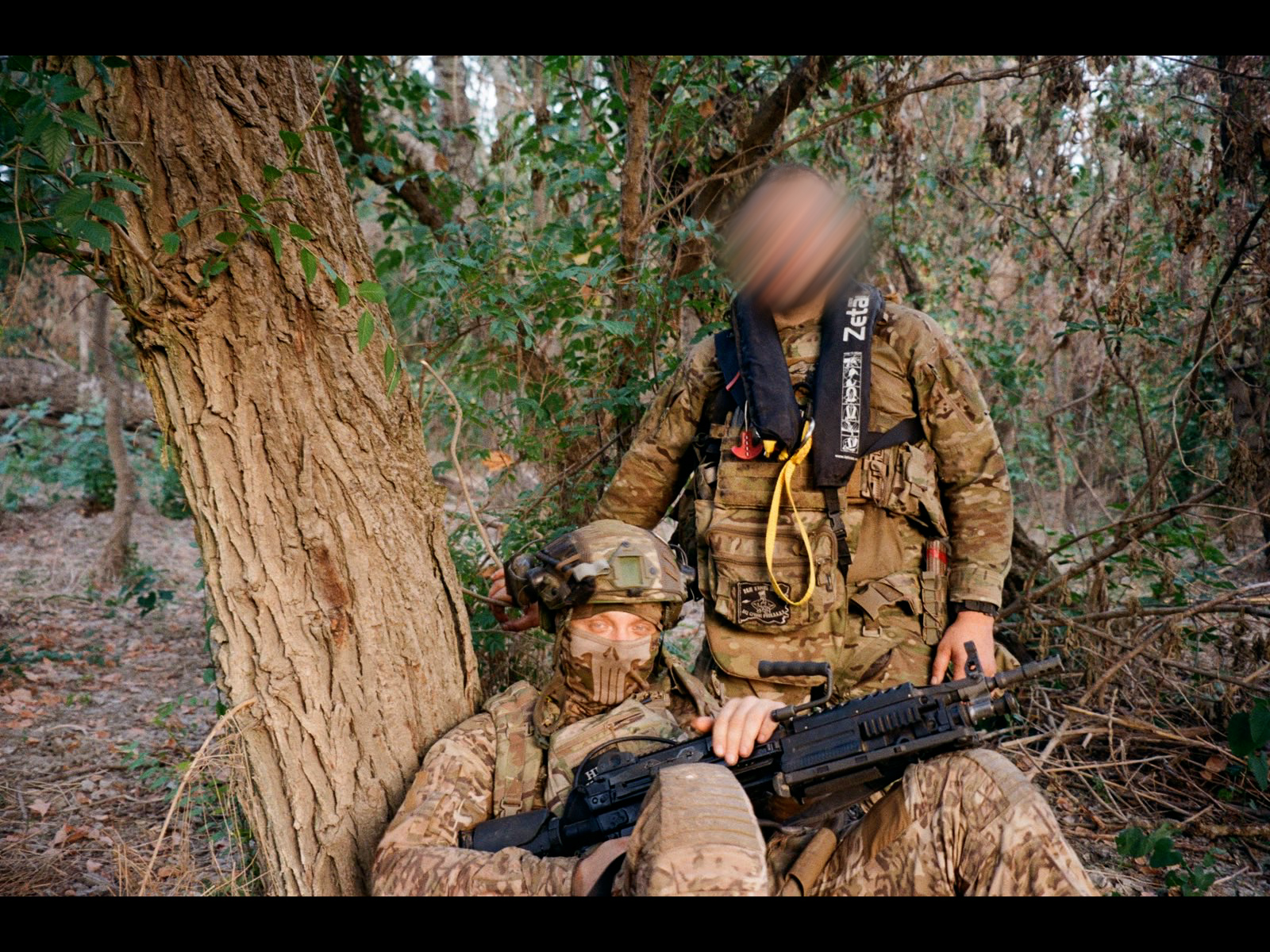
Major Simba organized a military operation in Nizhyn at the beginning of Russia's full-scale invasion of Ukraine (photo provided by the press service)
- So, thanks to your operation, you reduced the force of the attack on Kyiv?
- Yes. We analyzed Russian troops' movement routes, moved with four people in a car to the village of Kruty, which was not controlled by our unit, and used anti-tank mines to set a trap under the bridge where all the Russian logistics were passing. By blowing up the bridge, we forced the Russians to move 150-180 kilometers further along other roads, and this delayed them.
After Nizhyn, as part of another unit, we were transferred to combat operations in the Donetsk region. We stormed the positions and secured them. We performed tasks in Shchurove, Yampil, and Lyman - we made ambushes in the forests and worked there until Lyman was liberated from the Russian occupiers.
- You also took part in the defense of Bakhmut...
- We were not there for long. We adapt to different types of tasks. Because in Lyman, Yampil, when you walk through the forest in ambushes, you meet a minimum of artillery fire and the Russian troops. And when you get to Bakhmut, where if there is no artillery fire for 30 seconds, you realize that an assault has already begun from some quarter. You have to be more vigilant.
We had a unit consisting of two groups and were actively engaged in mortar fire, meaning we had two firing positions in Bakhmut itself. We also used snipers and cooperated with the 93rd Brigade. Often we had to help the guys to enter the positions if they were lost, to gain a foothold and hold the defense.
Every day there were dynamics, a huge amount of artillery shells. The same position could pass from the Russians to our control twice in one day.
We worked in Bakhmut for a month. It was February 2023. Many operations were conducted on the outskirts. These are Khromove, Vasylkivka, Trudove, Berkhivka and Berkhivka Reservoir, and so on. The groups were mobile and the tasks were as fast and flexible as possible. We could not, as infantry, be tied to one position and hold it. We had to move along the entire front line.
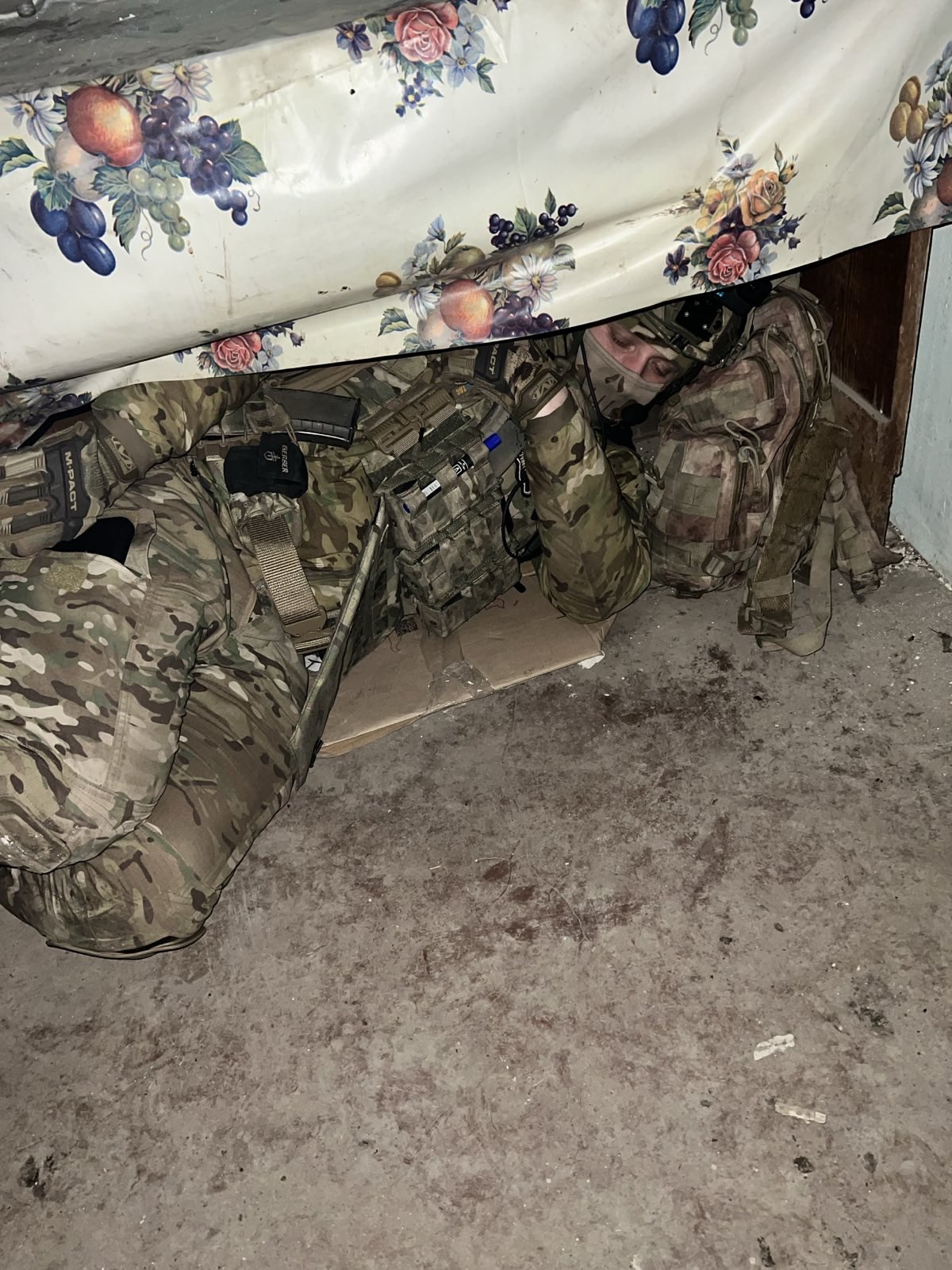 Major Simba has 5 years of combat experience (photo provided by the press service)
Major Simba has 5 years of combat experience (photo provided by the press service)
- I know that you managed to take Russian soldiers prisoner. What did they tell you?
- In total, we captured about a dozen Russians. We captured a Russian captain near Nizhyn. Their group either fell behind or got lost. Having raided them, we managed to destroy two armored vehicles and take three people from the personnel prisoner.
What they said in 2022 and now are radically different things. In the beginning, they said they knew nothing, that they had come here for training. It was a hackneyed methodology, but each of them knew exactly what task they had come here for.
The officer we took prisoner tried to prove for a week that he did not know how he got here. He asked us to let him go home and promised that he would never come back. Two weeks later, we handed him over to our military unit, and there were many interesting things that I cannot disclose... And those Russians who are now being captured do not want to talk, they realize that this is their final station.
They are so zombified that there is simply no point in talking to them. Now Russian prisoners are just an exchange fund to take our guys home.
- Are Russian prisoners really afraid to return to Russia?
- Yes, they are. We have a lot of video evidence and radio intercepts of their conversations that confirm this. The toughest thing I heard was from the Wagner PMC in the Donetsk sector, when we were holding the defense of Bakhmut. These fighters had no options at all - they were told that they were going to the end, and there was no turning back - either they would secure their position or they would not return at all. I will not disclose all the moments of their communication with their command, but there was nothing human about it.
It was also the case that half of them had hepatitis, and half had been convicted of the most serious crimes, so the Wagnerians were lost people. They had already come to terms with their deaths before they even arrived in Ukraine. The only motivation for the Wagnerians is a possible amnesty and some minimal financial support.
- And if we compare the Wagnerites with other units of the Russian army, are they stronger?
- The so-called invincible Wagner PMC that Russians talk about is scattered in all parts of the white world today. They are hiding from their people. What Wagner was able to do was destroy more than 50 thousand of its personnel in two blocks in Bakhmut. What kind of power and strength of a unit are we talking about? But the power of intimidation and the fact that people have nothing to lose has played its role.
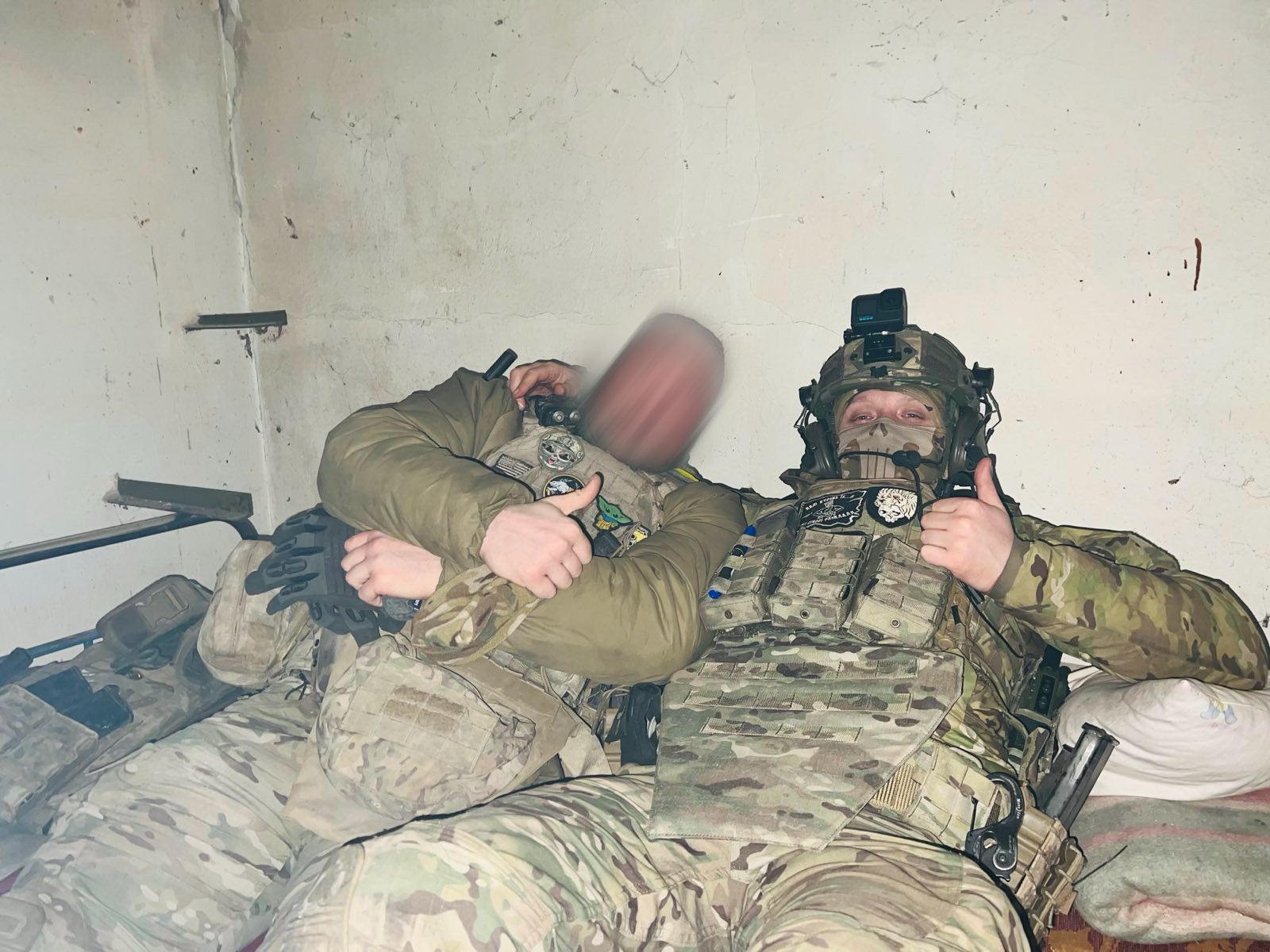 February 2023, Simba and his comrades performed combat missions in Bakhmut (photo provided by the press service)
February 2023, Simba and his comrades performed combat missions in Bakhmut (photo provided by the press service)
- Many impressive events are happening at the front every day. Share the story that you remember the most.
- I won't mention any specific units in order not to disclose any information. We were tasked with conducting reconnaissance. We discovered a Russian column of "tigers" - three armored vehicles, and their special forces. We let them pass in one direction, and their route ran through the rear from Yampil to Lyman. We ambushed them with fire, after which we managed to hit all three vehicles with their personnel.
It is interesting that when we moved to a safe distance of 1-2 kilometers, we raised a drone and waited for the evacuation to arrive. When another tiger arrived for evacuation and 4 personnel, we managed to destroy both this equipment and the military. After that, we waited for a long time, but no one else came there. There were a lot of photos of those damaged tigers on the Internet. We took the equipment that remained more or less intact to our units.
We did not suffer any losses then. We did everything according to the procedure. As a rule, it happens when it is a prepared ambush. When clear actions are planned, there should be no losses, but this is war and the situation can turn around at any time.
There was another less funny story, but I remember it. Our guys were performing a mission and entered a minefield. The whole subgroup got blown up. OZM-72 anti-personnel mines leave little chance of survival. That's why there were a lot of wounded, and one soldier was killed. When we heard the radio communication between them, we decided to move to evacuate and help the guys.
The first vehicle we sent to evacuate them hit an anti-tank mine. Since it was armored, the personnel survived, but the vehicle itself was destroyed. There was nothing to evacuate with. I knew many of these fighters personally, so I decided to take a medic with me and go to them in my car. We managed to evacuate all the personnel within 3 hours (we cannot disclose the number of soldiers so that Russia does not understand the composition of the units - ed.) The soldiers who were in bad condition received timely medical care and survived.
- What tasks is your unit performing now, if you can talk about it?
- We perform many complex and universal tasks. We are trained for any kind of work - for reconnaissance, ambushes, raids, engineering activities, cover, airborne assault. This is a versatile unit that can perform any task on water, on land, and in the air.
We carry out planning for each task. It takes place at two levels. The general planning is done by the headquarters and sets us tasks, and after that, our group is planned. Planning is carried out following all NATO procedures. We consider all possible scenarios, and then we move on to the material - what weapons we take on a mission, whether we need unmanned systems, and so on.
- There is a statement that a soldier's heroism is a mistake of the leadership. Do you agree with this? And what does heroism mean to you?
- Commanders' mistakes were, are, and will be because this is war. We cannot be robots and always make the right decisions. I know many fighters who are real heroes and perform heroic deeds despite their commanders.
But we need to figure out what is the very aspect of a hero. Is a person who did not leave you wounded on the battlefield and stayed with you until the end, held the enemy and you managed to escape - is he a hero? For me, yes, but is he a hero for everyone? Different actions can be considered heroic. It is not necessary to destroy 20,000 tanks to become a hero. Sometimes it is enough to make a strong-willed decision and stay to provide timely assistance.
We had a situation when one of my comrades was killed in a small arms battle and remained in a position occupied by the Russians. It was important for me to take him away. I told my guys that I was not forcing anyone because I understood all the risks of the operation, but I would evacuate my comrade. I could see in their eyes that many of them realized what we were signing up for and where we were going.
In addition to my guys, another unit arrived to go with us. We carried out a successful operation, destroyed the enemy, and took the body of our comrade. We were convinced he was dead. And during the evacuation, he started moaning, so we immediately assisted. But, unfortunately, a week later he died in the hospital.
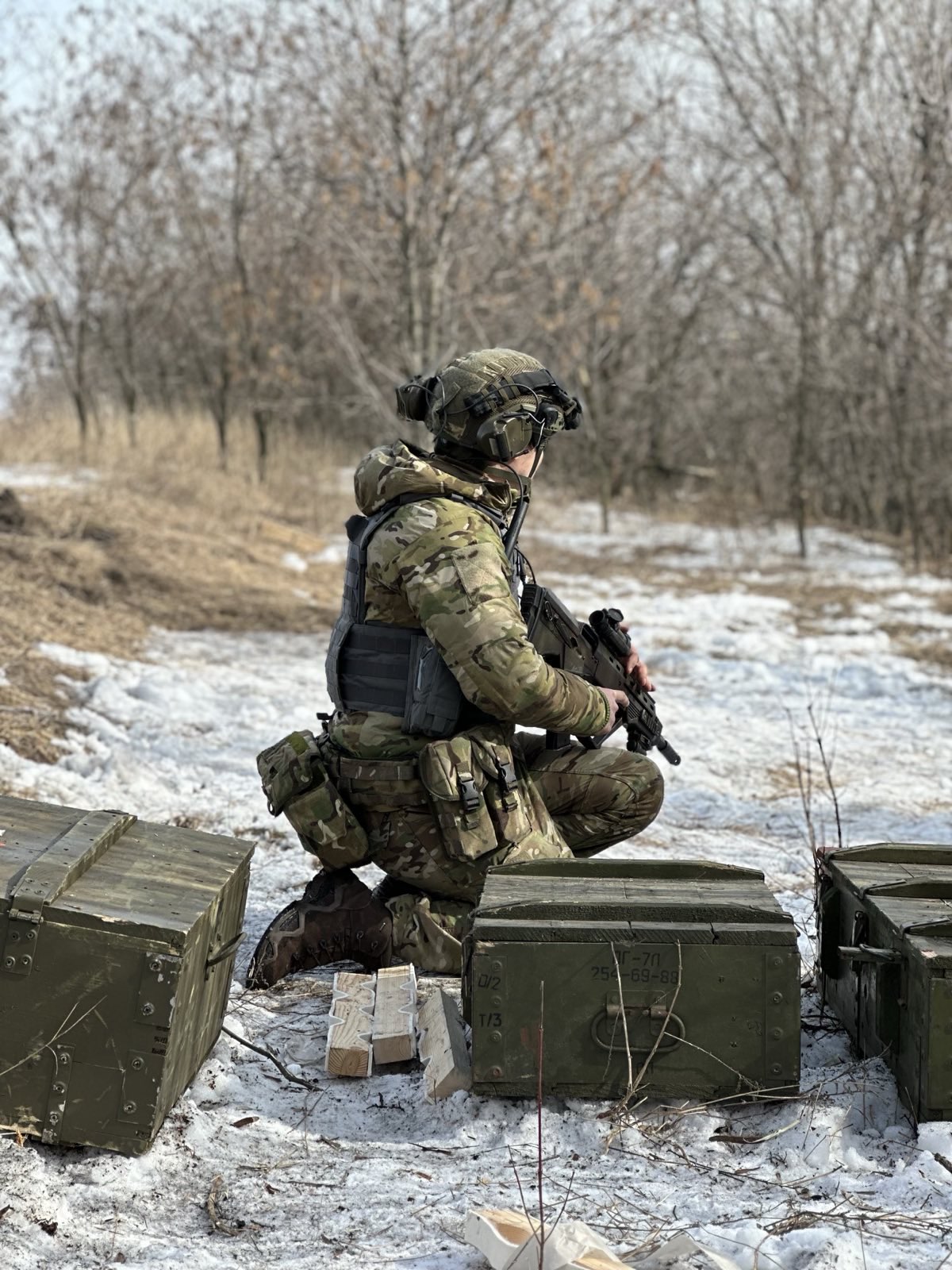 Major “Simba” plans to stay in the army after the war (photo provided by the press service)
Major “Simba” plans to stay in the army after the war (photo provided by the press service)
- How do you deal with the loss of your comrades?
- When you live with it all the time, you start to understand it, because tomorrow you could be in their place. But the memory of the fallen does not go away. We honor each of the fallen. We remember them on their birthdays, and anniversaries of their deaths, and communicate with their families. Just two weeks ago, we congratulated the father of our fallen guy on his anniversary.
- What can you say about the level of motivation in the army now, has it decreased?
- Some personnel are not motivated. This is normal because if all people said that they wanted to fight, I would think it was something abnormal. In our unit, every person understands why they are here and what tasks they have to perform, what risks it all entails.
People who are not motivated now should ask themselves why they are here. Since they are already in the army, they need to change something in their minds, train and prepare more. Commanders need to talk to their personnel. When people hear the support of their commanders behind them, they always find motivation.
- What kind of fighters would you like to see join your unit?
- It doesn't have to be a person with certain physical parameters, it doesn't matter at all. We select both in the regiment and in our unit. A person who has passed the basic test in the regiment - physical training, psychological and medical tests - comes to our unit for an interview, then we check physical activity and look at the person's nervous system. The most important thing is motivation and more or less adequate physical fitness, strong moral qualities. Everything else is acquired directly in the unit.
If the team hires a person for service, then various courses, exchange of experience, training, and support - everything falls on our hands.
- There is often a debate in society about whether a man should be mobilized to the front if he is panicked and does not want to fight.
- We ask a man who lives with his wife and children and goes to the pond every weekend to swim, whether he is ready to go to die. Let's draw a parallel and ask the soldiers at the front if they don't want to be there either. In this case, 80% of people will have to leave the army. Then what, will we drink coffee with Russians in Bukovel (Ukrainian ski resort - ed.)? So the question here is in the minds of citizens. If they can't fight, that's another question. There are many cases when a person can get a reservation from mobilization.
Unfortunately, I see that the malefactor has disappeared in many people. And those who have it are already at the front. No, I do not believe that all men should fight. Everyone has their responsibilities. We need police officers, firefighters, and doctors. But when a person is unconscious and refuses, hides, and runs away across the Tysa River, where the chances of dying are three times higher, what kind of attitude can be taken toward him?
- Do volunteers help you now? Has the level of support decreased?
- Volunteers are golden people, you don't ask them for anything, and they come and help you. We have regular volunteers who have been working with us since 2014. But it's the fundraisers that are hard to cover. There are just so many of them now...
I had the experience of raising money for one thermal imaging drone. Within a month, we raised 60 thousand hryvnias, while the price of the drone was 230 thousand. After that, I completely lost the desire to engage in such fundraising. The guys and I chipped in from our salaries, as well as my mother, wife, and all my friends. That was the end of my fundraising.
At the front, drones and vehicles are consumables, so they are always needed. Drones tend to fall, cars tend to break down or burn. Personally, this is my third car since the beginning of my rotation. The first one crashed into an armored personnel carrier, and the second one was a direct hit from a Russian tank. It was near Hryhorivka, I arrived at the checkpoint to see the guys from the neighboring unit, got out of the car and 30 seconds later I was hit by a direct hit. Only the wheels and the frame were left. We had been saving for this vehicle for 4 months, and it turned to ashes in 30 seconds. Now the third vehicle is still on the move and I hope it will serve for a long time.
- How do your relatives perceive your service, do they persuade you to leave the army?
- My wife is always in a bad mood. In the two years we have been married, we have been together for four months. I have seen my mother about 10 times since the beginning of Russia's full-scale invasion. There are no complaints from my wife and mother. It's hard for them, but they appreciate my work, value me, and support me. This is the most important thing in a family.
- I understand that victory is still far away, but have you thought about what you will do after the war?
- This victory will never be sweet for me, I lost many of my comrades in the war. Even after the war is over, I will continue to fulfill my duties in the army, prepare my unit, and build up my strength, because I do not believe in Russia's honesty and justice. I want to be ready for an attack once again. So I would like to stay where I am now. And if my knowledge and experience can help other people save their lives and inflict damage on the enemy, then I would probably prefer to stay in the army.
